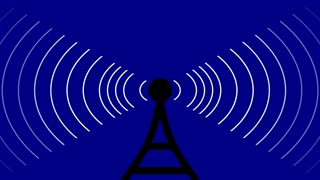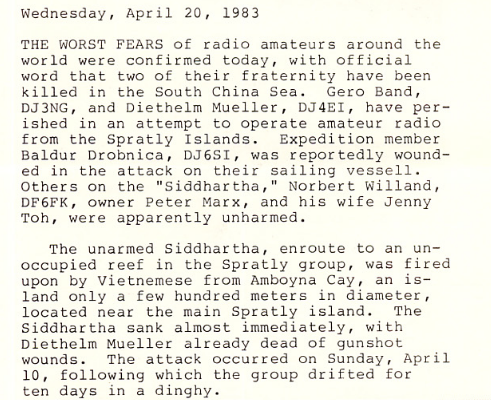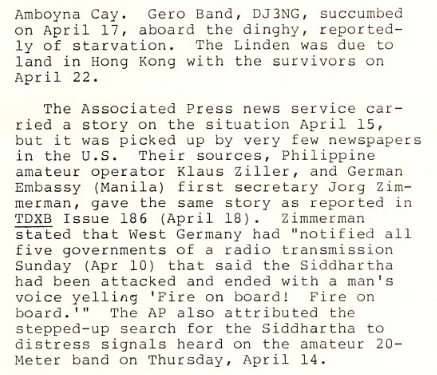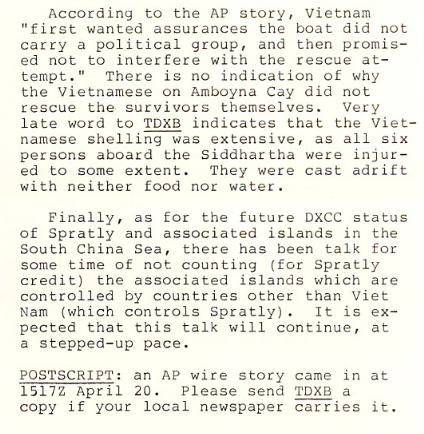Back in 1982 I was just getting into radio more seriously than merely listening to shortwave broadcast radio stations from across the world. I’d not long got my first CB radio, post legalisation in 1981, and was having a great time tinkering with antennas and trying to work out how to get the maximum transmission range from my legally permitted 4 watts of FM at 27 MHz. Met loads of great people on the air although I occasionally encountered the occasional suspect oddball who I later tried to avoid, both in real life and on air. Suspect oddballs are not confined to the radio world, you find such people in any walk of life.
Some of those I chatted on air to were licenced radio amateurs who were ‘slumming it’ on the 11 metre CB band and and enjoying the informality on 11 metres, something that they didn’t have on the regular Ham bands where operating procedures were and still are much more formal and professional in nature. I found these Hams to be thoroughly nice people and they impressed me greatly with their technical knowledge. This got me interested in what I could find on the various Ham Radio bands so I invested in a couple of receivers that could pick up the 2 metre and 70cm bands and the various High Frequency bands where the Hams communicated incredibly long distances via the very spectrum efficient and power efficient modes of Single Sideband and CW (Morse). I liked what I heard and wanted to learn more about what I was listening to.
I started to read the various radio amateur magazines of which there were more in number then than there are today, in order to increase my technical knowledge and by doing so I also found out about the various radio contests that would occur. Some of these contests involved radio Hams travelling to remote islands on what are called DX-peditions (DX is the slang for long distance) where there was little or no amateur radio activity and ‘activate’ that particular island so that other Hams could tick off this particular island in their list of countries ‘worked’ or talked to. I seemed to me to be something extremely exciting, especially as many of these islands were not reachable by commercial ships or aircraft and yachts and small boats were the only way that they could be reached.
I never considered that such activities could be deadly until I read in one of the magazines, I think it was Practical Wireless, of the horrific case of the DX-pedition to the Spratly Islands in the South China Sea. A group of West German radio amateurs were, on April 10th 1983, travelling on a yacht to the Spratly Islands, which was the subject of various territorial disputes between nations in the region and in particular an uninhabited Islet near Amboyna Cay where they were going to set up the radio gear and start transmitting.
Unfortunately for the radio Hams on the yacht, Amboyna Cay was occupied by Vietnamese troops who fired on their vessel. Why they fired on the yacht could be down to the fact that the Vietnam War had ended less than a decade before and tensions between the different countries in the region in this area of disputed islands were high, which could have meant that the Vietnamese troops were more trigger happy than usual. One West German Ham, Deithelm Mueller callsign DJ4EI was killed immediately by the gunfire. The attack caused their yacht to sink quite quickly and the survivors of the attack comprising some other Hams and the yacht’s owner and his wife had to take to a survival dinghy. The survivors drifted in the dingy for ten days and during the time they were adrift another of the Hams, Gero Band DJ3NG, died before the party could be rescued, reportedly from starvation. Other members of the party suffered injuries in the attack and also suffered from the effects of their long sojourn at sea in an open boat.
Eventually an airborne search and rescue attempt was set in motion in order to find out if any of the DX-pedition had survived but no trace of the party could be found. The survivors were eventually picked up by a passing merchant ship and it was then that the full horror of what became known as the Spratly Islands Disaster became known. A contemporary account of the disaster can be found below in the screenshots from The DX Bulletin dated April 25th 1983.
Up until I read about the Spratly Disaster I had never thought that any aspect of radio could be lethal in this sort of way. Radio for me was then, as it is to a certain extent now, a place where I could keep in contact with mates, chat technical stuff, get invites to parties and, back then but not now, occasionally meet hot or not so hot young ladies (descriptions over the air were somewhat not that honest or accurate shall we say). Sure you could get an electric shock or fall from an antenna tower or die from stupidity going up on mountaintops with radio equipment, but this was the first time I encountered lethal violence meted out to radio Hams by the operatives of a state. This was at a time when even the Soviet Union had a thriving amateur radio scene which the State mostly left alone on the grounds that there was and still is a gentleman’s agreement that users of the bands will not talk politics or religion and that the radio Hams of today were likely to be tomorrow’s Soviet engineers. The idea that a state would intentionally fire on a boat containing radio Hams at a time of relative peace was almost unheard of.
There are still occasionally DX-peditions to Spratly Islands but as the situation in the region can still be unsafe, such expeditions also can get called off or postponed for safety reasons as was the case with the November 2022 visit to Spratly. The next activation of the Ham radio station on the islands will be between April 30th to May 9th of this year.
What should have been an an exhilarating and exciting trip that combined radio with travel to far flung places ended in disaster for the poor West German Hams with two of them losing their lives at the hands of Vietnamese troops. I think that it right that this month, forty years after the Spratly Disaster we remember what happened to these innocent radio amateurs. May the memory of Diethelm DJ4EI and Gero DJ3NG be for a blessing. They went to play radio and didn’t expect to be killed in the horrific manner that they were.









